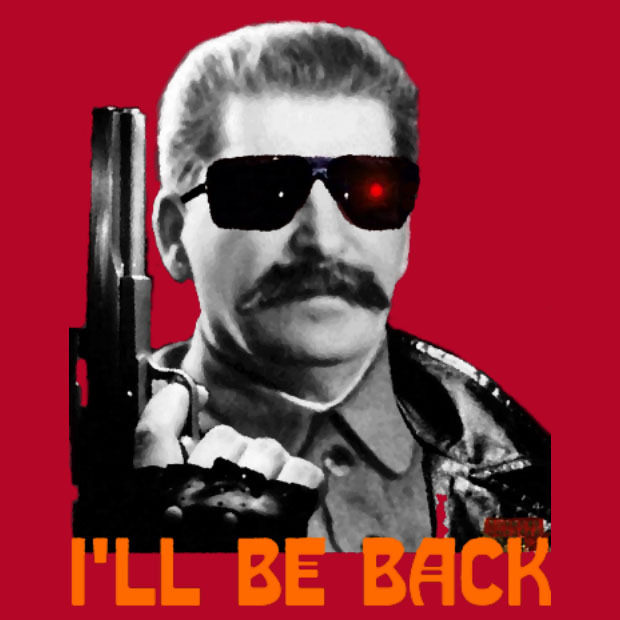Stalin didn’t like idealist portrayals of himself; yet I see the term CoP associated with him. (In Wikipedia and HoI4 (Soviet Union focus tree) for example.)
I don’t see that term around Mao Zedong, Fidel Castro, and ironically around the DPRK; but they also are demonized as evil dictators that force the people to worship them.
It wasn’t entirely unfounded, since Stalin was kinda idolised among ML’s, but just as every legit or less legit* (and applicable not only in socialist sense) critique socialists make about socialist state or leader, it got taken by capitalist propaganda machine**, turned into carricature and then blown up to ridiculous proportions to use as bludgeon against ML’s.
*fucking Khrushchev
**with significant help of fucking Khrushchev
*fucking Khrushchev
**with significant help of fucking Khrushchev
That for days. I mean, the fucker needed some nice pretence for why he’s gonna ruin everything Stalin built, so…uh…uh…CULT OF PERSONALITY!
Он просто очень сильно любил кукурузу
deleted by creator
Krushchev was so salty that Stalin was so popular that the only way he could cancel him was by claiming he forced people to like him and by gaslighting the world into believing he was an egoistical despot; all after he was dead, of course.
The critical factor that resulted in this was the secret speech: “On the Cult of Personality and its Consequences”, made by Nikita Khrushchev in 1956, some 3 years after Stalin’s death. This ostensibly secret speech was widely distributed, both to representatives of foreign communist parties and to senior state officials in the USSR. It was used to pave the way for Destalinization in the Soviet Union, a stance that is often implicated in causing the Sino-Soviet split and the subsequent development of the anti-revisionist tendency as the leadership of the USSR aimed to demonise its past leader. When Georgian communist caught wind of the speech, it precipitated days of demonstrations and riots, amongst which various demands were pushed, including removal of Khrushchev from power and cessation of Georgia from the USSR. In North Korea, some factions of the Workers’ party tried to use the speech to justify their own attempt to displace Kim Il-Sung, arguing that he too had cultivated a detrimental cult of personality around himself.


